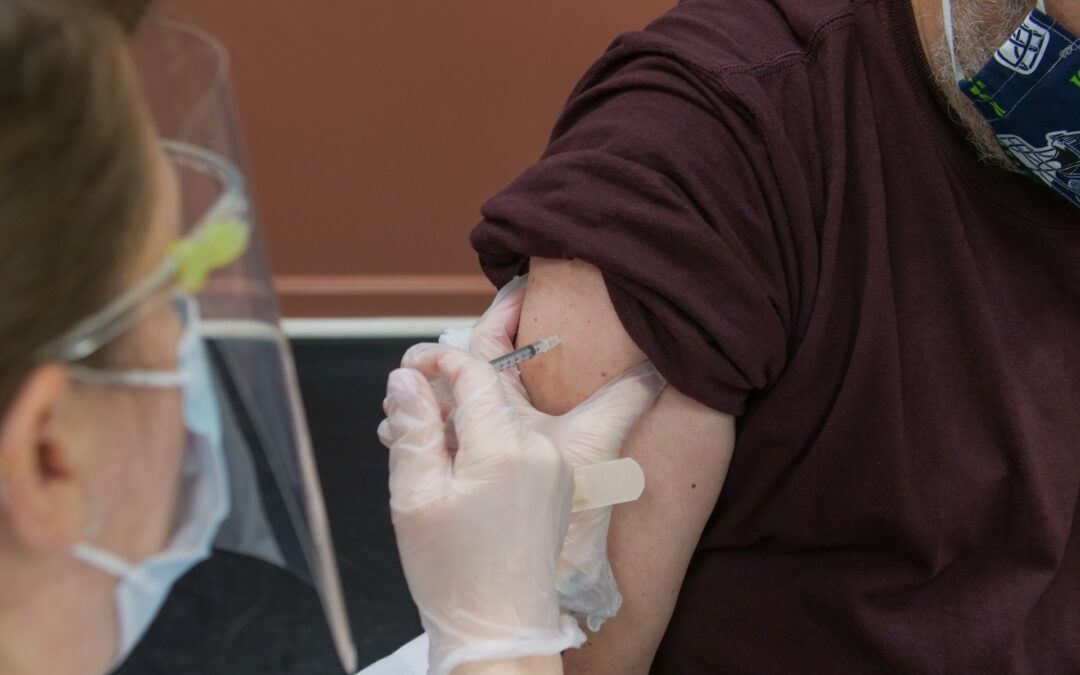Influenza, or the flu, is a highly contagious respiratory illness caused by the influenza virus, affecting millions of people each year and leading to potentially severe complications, hospitalizations, or even death. Fortunately, with the availability of flu shots, individuals can significantly reduce their risk of contracting the flu and prevent its spread within their communities. In & Out Urgent Care, offering accessible healthcare in the Metairie, New Orleans, and Covington areas, provides flu shots to help keep patients healthy and contribute to a robust public health system.
While the flu vaccine is not 100% effective in preventing the flu, it substantially decreases the likelihood of illness and minimizes the severity of symptoms if contracted. Additionally, widespread flu vaccination can contribute to herd immunity, safeguarding vulnerable populations like young children, the elderly, pregnant women, and those with weakened immune systems. The Centers for Disease Control and Prevention (CDC) recommends annual flu vaccination for everyone aged six months and older, with few exceptions.
This blog post delves into the importance of yearly flu shots for individuals and communities, the science behind their effectiveness, and what to expect when receiving a flu vaccine at In & Out Urgent Care. By raising awareness of the significance of flu vaccination and debunking common misconceptions, individuals can make informed decisions about their own health and contribute to collective well-being in their communities.
The Science Behind Flu Shots: How They Work and Evolve
Types of Flu Vaccines
There are several types of flu vaccines available, designed to protect against different strains of the influenza virus. The most common types include:
- Trivalent vaccines: These include two types of influenza A (H1N1 and H3N2) and one type of influenza B, providing protection against three flu strains.
- Quadrivalent vaccines: Offering broader protection, these vaccines include the same components as trivalent vaccines, plus an additional influenza B strain.
Scientists continuously research and update flu vaccines based on the strains that are most likely to circulate during the upcoming flu season.
Building Immunity to Influenza
Flu vaccines work by stimulating the body’s immune response without causing illness. When a person receives a flu shot, their immune system recognizes the inactivated or weakened virus components as foreign invaders and produces antibodies to fight them. If the vaccinated person is later exposed to the actual flu virus, their immune system is better prepared to recognize and combat the infection, preventing illness or reducing symptom severity.
The Ever-Changing Influenza Virus
Influenza viruses are constantly changing, with new strains emerging each year through a process called antigenic drift. As a result, the effectiveness of the flu vaccine can vary from year to year, but it remains the most effective way to prevent flu-related complications. This is why it is essential to receive a flu shot annually, as the vaccine’s composition adapts to the anticipated strains for each flu season.
Vaccine Effectiveness Factors
Several factors can influence the effectiveness of flu vaccines, including the recipient’s age, overall health, and the alignment of the vaccine strains with the circulating viruses. Despite these variables, the CDC emphasizes that annual flu vaccination remains the best defense against influenza and its complications.
Flu Shot Benefits: Beyond Personal Protection
Herd Immunity and Community Health: When a significant portion of the population receives flu vaccines, the spread of the virus slows down, leading to a phenomenon known as herd immunity. This collective protection benefits individuals who cannot receive vaccines due to age, medical conditions, or allergies, as well as those who may not respond effectively to the vaccine. By getting vaccinated, individuals contribute to overall community health and protect vulnerable populations.
Reducing Strain on Healthcare Resources: Widespread vaccination can help prevent spikes in flu cases, which can place a significant burden on healthcare facilities. By reducing the number of flu-related hospitalizations and emergency room visits, hospitals can better allocate resources and staff to address other health emergencies.
Economic Impact: Preventing the flu or minimizing its severity can lead to fewer missed workdays and reduced medical expenses, ultimately benefiting both individuals and the broader economy. A healthier workforce can also contribute to increased productivity and overall business success.
What to Expect When Receiving a Flu Shot at In & Out Urgent Care
1. Appointment or Walk-In:
At In & Out Urgent Care, patients have the option to either book an appointment or simply walk in to receive their flu shot. Their flexible services cater to the unique schedules and needs of individuals in the Metairie, New Orleans, and Covington areas.
2. Consultation and Consent:
Upon arrival, healthcare professionals will discuss any concerns and answer questions about the flu vaccine. A consent form may be required, outlining the patient’s understanding of the benefits and potential risks associated with flu vaccination.
3. Vaccine Administration:
Following the consultation, a healthcare professional will administer the flu shot in the upper arm. The process is quick, and most individuals experience minimal discomfort during the injection.
4. Post-Vaccination Care:
After receiving the flu shot, patients may experience minor side effects at the injection site, such as redness, swelling, or soreness. These symptoms typically subside within a few days, and healthcare professionals may provide guidance on how to alleviate any post-vaccination discomfort.
Conclusion
Annual flu shots represent a vital tool in safeguarding individual and community health, preventing the spread of influenza, and minimizing strain on healthcare resources. In & Out Urgent Care’s convenient and accessible flu vaccination services in Metairie, New Orleans, and Covington make it simple for individuals to obtain their annual flu shot and prioritize both their well-being and that of their communities. By understanding the science and benefits behind flu vaccines and advocating for widespread vaccination, individuals can empower themselves and others to make proactive choices for a healthier flu season and a stronger public health infrastructure.

